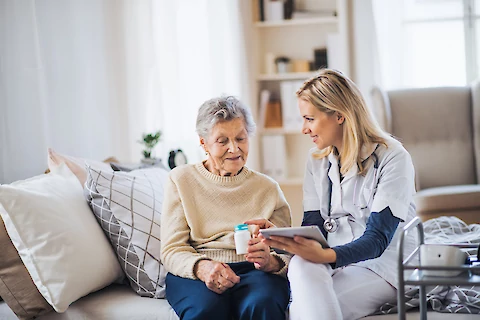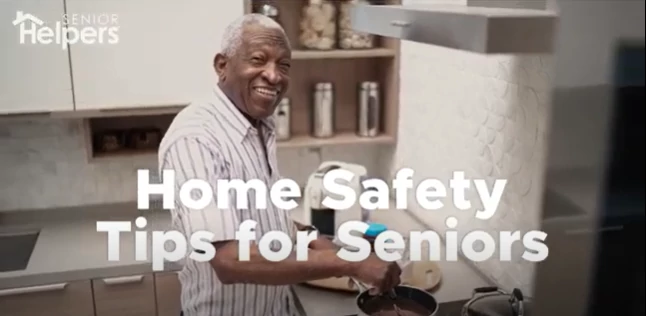
Tips to Make Your Home Safer for Seniors
Increasingly, older adults are choosing to remain in their homes rather than move to senior care communities. While this preference for aging in place has a multitude of benefits, it's often necessary to modify the home to make it safe for seniors with mobility challenges. Fortunately, most modifications are relatively inexpensive and don't require expertise to accomplish. Here's what you need to know to make a home safer for a senior.
Senior Care Home Safety Tips
1. Prioritize Fall Prevention
Falls are the leading cause of injury for seniors. According to the Centers for Disease Control (CDC), a senior falls every second of every day in the United States. The good news is you can take measures to greatly reduce your loved one's chances of becoming part of that statistic.
Throw rugs are a trip hazard. Removing them is the safest course of action. If carpeting on stairs is in poor condition, you may want to remove it too. Loose handrails need to be secured or replaced. Keep stairs as well as floors clear of clutter such as pet toys, books, and shoes. Electrical cords should be secured or placed behind furniture.
Low, glass tables may go unnoticed by seniors with vision issues. Covering them can make them easier to see. Narrow pathways between furniture can be difficult for seniors to navigate. After moving furniture, seniors may need time as well as assistance to adjust to a new furniture layout.
Any uneven or broken pavement in the driveway or walkway should be repaired. Keeping the walkway clear of snow, ice, leaves, and clutter is important. If the porch steps don't have a handrail, it's a good idea to install one.
2. Provide Adequate Lighting
Since age-related visual impairment is common, a well-lit environment is a necessity. It's usually best to inspect the home during the day and at night to determine lighting needs. Are there rooms or hallways that have unlit areas? Could the stairway use more lighting?
Adding night lights to illuminate the path from the senior's bed to the bathroom can be helpful. Consider installing motion sensor lights outside the home to make it easier to enter and exit the home after dark. Placing task lighting in key areas enhances safety. Brighten kitchen countertops with lighting under cabinets. Put wet-rated lighting over the shower or tub.
3. Give Extra Attention to Bathroom Safety
A wet environment creates additional hazards. However, there are options to fit the level of bathroom modification that's right for your senior's home. For instance, some families choose to do light modifications to an existing bathroom. They may install grab bars near the toilet and in the tub or shower for fall prevention and to make the bathroom easier to navigate. A light modification may also include adding a handheld shower, a shower seat, and nonskid bathmats.
If you're remodeling a bathroom or building a new bathroom, you may want to design it with your loved one's current and potential needs in mind. While the senior you're helping may not use a wheelchair now, in the future the senior may need the entry and layout wide enough to accommodate a wheelchair. Similarly, a curbless shower allows seniors to walk or wheel into the shower without having a ledge to roll or step over.
4. Staying Safe Around the House
Levers are simpler to use than doorknobs. Seniors who struggle with the use of their hands will appreciate having levers throughout the house. Likewise, rocker-style light switches are easier to operate than traditional toggle switches.
Senior Helpers Milwaukee is prepared to help ensure your loved one is able to live safely at home for as long as possible. Senior Helpers has made it simple for families to understand their loved one's care needs with our exclusive Senior Helpers LIFE Profile (Life, Independence, Function, Evaluation).
This data-driven assessment tool provides a holistic view of the factors that influence your loved one's ability to age in their own home — and how to keep them safe at home. Call us today for your free in-home LIFE profile safety assessment at (414) 404-9933.
